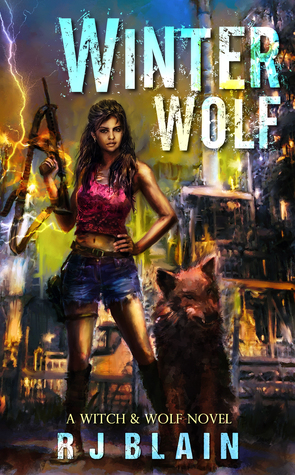The world is full of corpses, and Jackson knows them by name. When a group strives to destroy the Inquisition, his powers may be all standing between the supernaturals and extinction.
However, when he learns the truth behind the deaths of his wife and unborn daughter, Jackson may prove to be the greatest threat of all to the survival of mankind...
GUEST POST
Go ahead – Love Bad Books
Long before I started writing books, I loved reading books. I read everything I could get my hands on, from classic literature to what critics claim are some of the worst books ever to be written. Literature, no matter what genre, is a beautiful thing. You can find stories about real lives, or you can indulge in escaping to magical worlds. No matter what you like, there’s something for you out there.
But one thing that happens (and shouldn’t) is the prevalence of critics hammering at readers for enjoying what they consider to be a bad book. Here’s the deal: if you liked the book, it wasn’t bad.
 Critics look at books and try to apply literary standards to them, forgetting one very important thing. Readers enjoy books that resonate with them. If a bad book resonates with them as a reader, is it truly a bad book? What makes a bad book a bad book? Is it the poor usage of grammar? The creative spelling of some words? Flat and dull characters?
Critics look at books and try to apply literary standards to them, forgetting one very important thing. Readers enjoy books that resonate with them. If a bad book resonates with them as a reader, is it truly a bad book? What makes a bad book a bad book? Is it the poor usage of grammar? The creative spelling of some words? Flat and dull characters?
I’m going to use Twilight by Stephanie Meyers and Harry Potter by JK Rowling. These books have been slammed (and praised) by critics alike. They share something in common.
Millions upon millions of people love these books.
I’ll begin with Twilight. Bella is a young woman who, at first glance, seems so cookie cutter she could be anyone… and that is where the brilliance lies. Meyers does something most authors can’t: she created a character readers could (and did) lose themselves in.
For a moment, young girls and women around the world walked in Bella’s shoes. They escaped their reality and stepped into Meyers. Is the fiction great? Not particularly. It was well-written, but simplistically so—and that is why the books worked so well.
The writing didn’t get in the way of the story. The writing didn’t get in the way of people being able to experience Meyers’s world. Therein lies the magic of the Twilight books.
 Many people read to escape the real world for a while, and Meyers found the perfect blend of writing and characters to accomplish it. To critics, the book is bad—but to the millions of readers who left the real world for another one, just for a little while, the books were great.
Many people read to escape the real world for a while, and Meyers found the perfect blend of writing and characters to accomplish it. To critics, the book is bad—but to the millions of readers who left the real world for another one, just for a little while, the books were great.
The same exact thing applies to Harry Potter. At one point in our lives or another, we experienced life as a child under the staircase. We wanted to be part of a bigger, better world. Through Harry’s eyes, we were taken to a beautiful new world, one where magic is real—and we believed.
Adults were made fun of for loving Harry Potter, but as book lovers, we’ve forgotten one very important thing.
Any book that takes us to a new world and leaves us wanting more isn’t a bad book—it’s a great one. The words that take us there might not be perfect, but the results matter. That book held you. That book wormed its way into your heart… and it stayed there.
Any book that captures a reader’s heart isn’t a bad book. Just because a book isn’t your cup of coffee doesn’t make it a bad book. A reader should never feel ashamed of loving a book, and I think the critics in us forget that sometimes.
 RJ Blain suffers from a Moleskine journal obsession, a pen fixation, and a terrible tendency to pun without warning.
RJ Blain suffers from a Moleskine journal obsession, a pen fixation, and a terrible tendency to pun without warning.
When she isn't playing pretend, she likes to think she's a cartographer and a sumi-e painter. In reality, she herds cats and a husband, and obeys the commands of Tsu Dhi, the great warrior fish.
In her spare time, she daydreams about being a spy. Should that fail, her contingency plan involves tying her best of enemies to spinning wheels and quoting James Bond villains until she is satisfied.



No comments:
Post a Comment